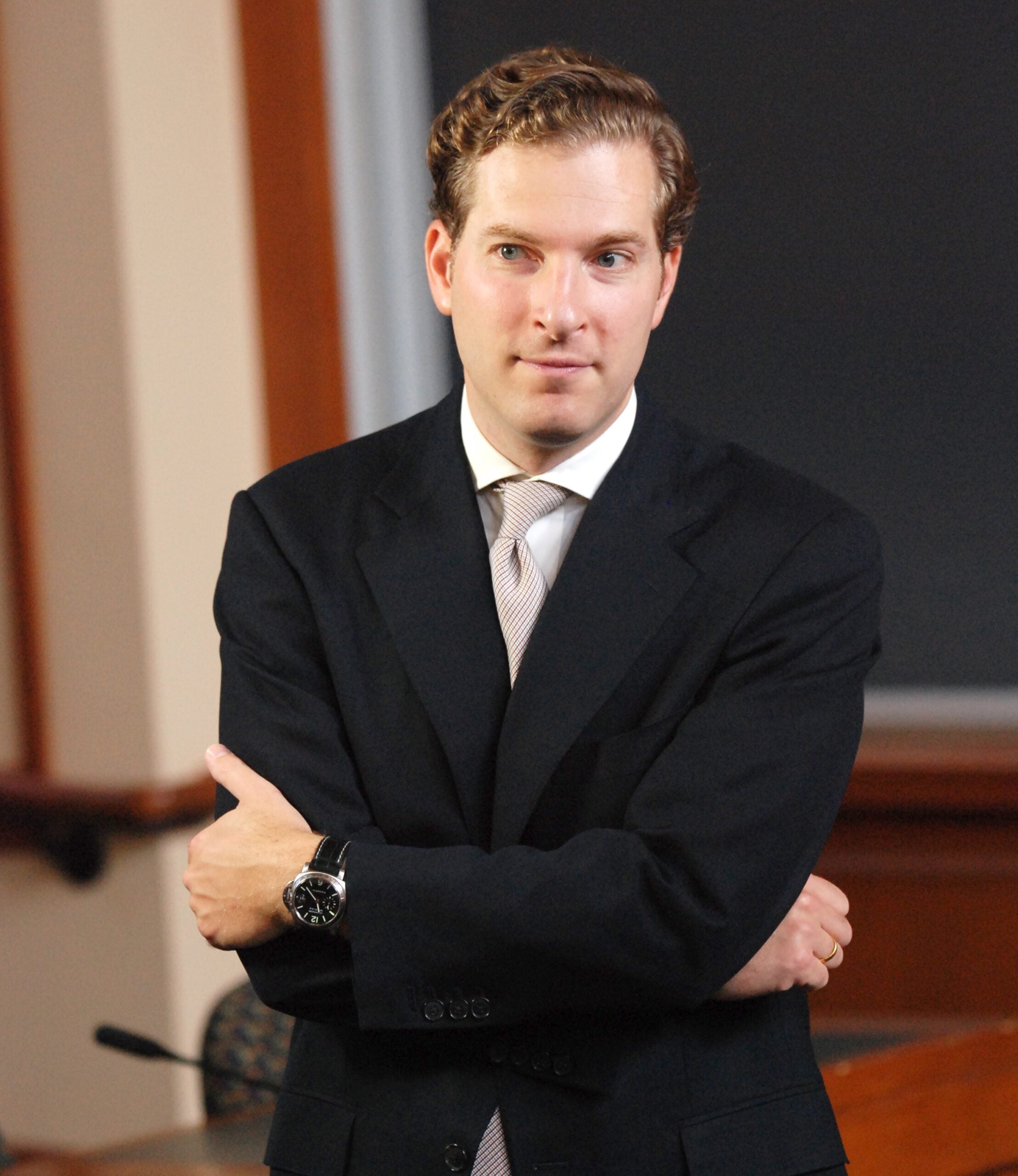At a Feb. 6 talk sponsored by the Harvard Law and International Development Society, Noah Feldman, Bemis Professor of International Law, focused on corruption in China and how it is likely to play out in the country’s political development.
“It’s reasonable to think that the CCP [Chinese Communist Party] will successfully weather the challenges of corruption,” he said. “The structure of governance coupled with the rather incidental but not trivial efforts to manage it are probably sufficient to maintain the system.”
Feldman acknowledged that the economic consequences of corruption are important as an object of study. But as a scholar trained in constitutional law, he said, he would focus his comments on examining what shapes the exercise of political and state power. What is the cost of widespread corruption in China to the legitimacy of its government, he asked, when that legitimacy is based primarily on delivering economic growth?
Although the CCP bases its legitimacy on other factors, he said, such as regularized political transitions and some measure of popular accountability, Feldman argued that its authority rests primarily on growth. As a result, people are willing to tolerate some level of corruption, as long as growth continues. This corruption is likely not debilitating, Feldman said, as a result of China’s “elite selection method.”
In the history of political thought, Feldman argued, despite the world’s cultural diversity and the many existing methods of governance, there are essentially two methods of elite selection: heredity and meritocracy. Both styles have advantages and disadvantages.
Heredity has the benefit of regularity because succession is predictable, but suffers from regression to the mean for the elite. An even greater benefit of heredity, Feldman suggested, is that when rulers know their children will remain in power, they have incentives to keep the system intact, while dictators will want to rob the state in order to pass on its wealth to their children.
Meritocracy, on the other hand, has the benefit of placing qualified people in power. It also helps prevent revolution: Feldman argued that if good people are excluded from power and political institutions, they are incentivized to rebel against the state. However, meritocracy eliminates the trans-generational incentives present in a hereditary system.
China combines both of these styles into a mixed system similar to the United States. There are “princelings,” such as children of senior figures in the party and the military, and there are people who come up through a meritocratic organization, such as the Communist Youth League. As a result, China’s elite class has some interesting features, Feldman said.
“Even if you’re a hereditary leader, a princeling, you have to do something to qualify yourself,” Feldman said. “You can’t be completely incompetent and end up in a very senior position.”
In addition, the meritocracy feeds into the hereditary class: that is, children of meritocrats can become hereditary elites.
The elites do not want to eliminate corruption altogether, Feldman argued, as they hope to gain some benefit from their position. However, collectively, the party has an interest in managing corruption in order to maintain its legitimacy and pass benefits on to the next generation.
“But—and here’s the key problem for corruption studies—you don’t have individual incentives for any one member of the party to limit corruption,” Feldman said. “You yourself would like to steal as much as you can get away with.”
This is the classic collective action problem, Feldman noted. The Chinese Communist Party is not especially committed to the rule of law, he said, because it may threaten the authority of the party. Instead, the government primarily uses institutional collective action, occasionally rounding up and punishing corrupt officials. And when an incident of corruption is publicized, Feldman said, that person is punished.
Feldman presented two examples of the Chinese system holding publicly corrupt officials accountable. In one incident, the son of a Chinese official crashed his Ferrari, killing him and seriously injuring the two women in the car with him. His father was soon removed from his government post. In another incident, the wife of politician Bo Xilai allegedly murdered a British businessman and called on a police chief to help her cover it up. Bo Xilai, Feldman said, was purged from the government.
“The system is … acting accountably,” Feldman said. “When someone’s corruption becomes evident, that person is punished and that can have the effect of legitimizing the system overall.”
—Divya Subrahmanyam
